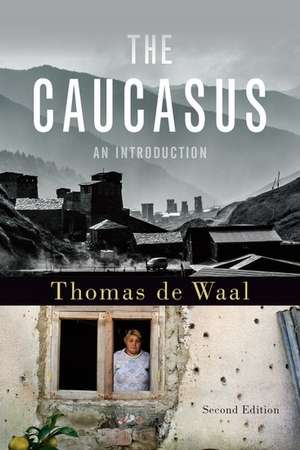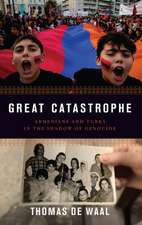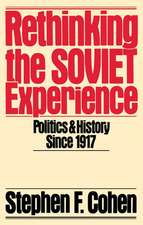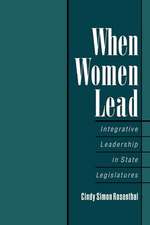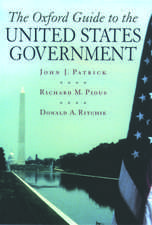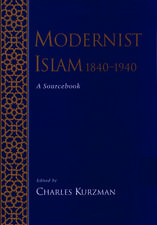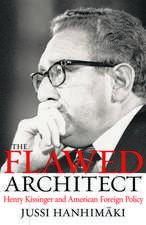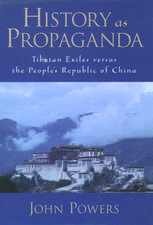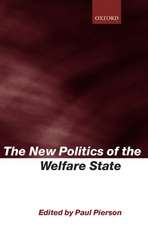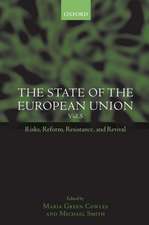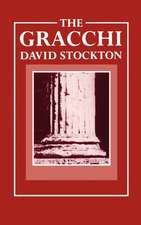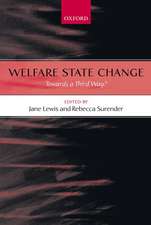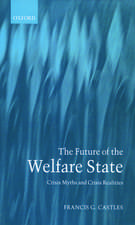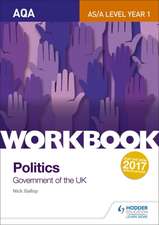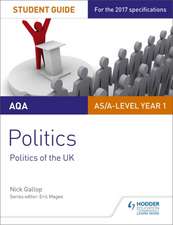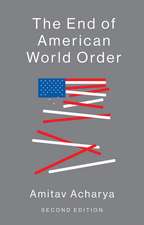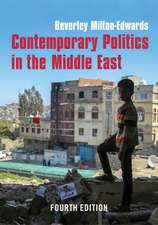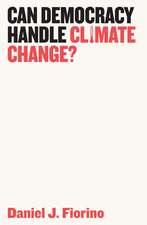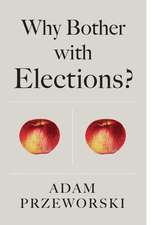The Caucasus: An Introduction
Autor Thomas de Waalen Limba Engleză Paperback – 20 dec 2018
The Caucasus is a new updated version of an essential guide that has introduced thousands of readers to a complex and fascinating region. Thomas de Waal gives a brief and stimulating portrait of Armenia, Azerbaijan, Georgia, their multi-layered history, seemingly intractable conflicts and complex politics.
| Toate formatele și edițiile | Preț | Express |
|---|---|---|
| Paperback (1) | 124.94 lei 3-5 săpt. | |
| Oxford University Press – 20 dec 2018 | 124.94 lei 3-5 săpt. | |
| Hardback (1) | 512.37 lei 31-37 zile | |
| Oxford University Press – 20 dec 2018 | 512.37 lei 31-37 zile |
Preț: 124.94 lei
Nou
Puncte Express: 187
Preț estimativ în valută:
23.91€ • 24.70$ • 19.89£
23.91€ • 24.70$ • 19.89£
Carte disponibilă
Livrare economică 26 februarie-12 martie
Preluare comenzi: 021 569.72.76
Specificații
ISBN-13: 9780190683092
ISBN-10: 0190683090
Pagini: 312
Dimensiuni: 155 x 234 x 15 mm
Greutate: 0.45 kg
Ediția:2
Editura: Oxford University Press
Colecția OUP USA
Locul publicării:New York, United States
ISBN-10: 0190683090
Pagini: 312
Dimensiuni: 155 x 234 x 15 mm
Greutate: 0.45 kg
Ediția:2
Editura: Oxford University Press
Colecția OUP USA
Locul publicării:New York, United States
Recenzii
His book is a factual exploratory work for the interested western readership, which helps to navigate through the complicated political network of the countries of the South Caucasus of great geopolitical importance.
Nobody has dealt with today's Transcaucasia as lucidly as Thomas de Waal.
Thomas de Waal is a very astute author with a special sensitivity to the outside world ... His writings, therefore, are surely a must read ... it has also the potential of influencing western thinking about the Caucasus for generations to come.
A compact but rich book examining the southern side of the range, where combustible difficulties afflict three small post-Soviet countries: Armenia, Azerbaijan and Georgia. ...If ever there was a place that needed a competent and even-tempered guide, this was it. Mr. de Waal provides one. Currently an analyst at the Carnegie Endowment for International Peace, he has traveled through and written of the Caucasus more than most any outsider since the Kremlin's grip over the region loosened during the Soviet collapse. His book contains history and knowing flair:..will likely have many lives. Why? The wars that broke out in the 1990s are not over. Mr. De Waal's book is welcome now, and most useful. If one of the wars flares up again, it will be essential.
Assiduously researched and lucid primer. While it may be easier for the distant academic to be dispassionate, de Waal is more than that. Through the past two decades, he has written extensively on, and from, the region for British newspapers and the Institute for War and Peace Reporting. He is also the co-author of Chechnya, probably the best contemporary volume on that violent Russian republic. The Caucasus reflects a depth of understanding of the region that doesn't stray into the didactic. In recent years, other volumes have appeared on the South Caucasus, notably Charles King's The Ghost of Freedom, and Thomas Goltz's diaries of Georgia and Azerbaijan. But de Waal has produced the most important work. And, as with any good book, it leaves the reader hungering for more.
Well-written, accessible and engaging...[De Waal's] magisterial histories are an essential part of a comprehensible explanation of the intractable problems that beset the region.
Thomas de Waal has written one of the most vivid, clear-minded accounts of the history and current troubles of the lands between Russia and Turkey. The Caucasus defines easy explanation, and de Waal deftly untangles the webs of mystification and obfuscation that have so often marred our understanding of why this rich and beautiful region, a cradle of diverse civilizations, has failed so miserably to realize its promise.
Europe and Asia, mountains and flatlands, Christians and Muslims, ancient cultures and modern states--the Caucasus has long been a classic borderland in many senses. Blending first-hand reporting, historical narratives, and original research, The Caucasus is an indispensable guide to the fractious politics and complicated histories of the region's nations and peoples.
"This is the definitive text for anyone interested in this complex region. De Waal describes the deep roots of current conflicts and his analysis of the present situation is right on target. It should be required reading for anyone involved in Caucasian affairs.
The Caucasus is a mini-encyclopedia, and de Waal a peerless guide for navigating this mountainous maze of tangled enmities and ethnicities.
Nobody has dealt with today's Transcaucasia as lucidly as Thomas de Waal.
Thomas de Waal is a very astute author with a special sensitivity to the outside world ... His writings, therefore, are surely a must read ... it has also the potential of influencing western thinking about the Caucasus for generations to come.
A compact but rich book examining the southern side of the range, where combustible difficulties afflict three small post-Soviet countries: Armenia, Azerbaijan and Georgia. ...If ever there was a place that needed a competent and even-tempered guide, this was it. Mr. de Waal provides one. Currently an analyst at the Carnegie Endowment for International Peace, he has traveled through and written of the Caucasus more than most any outsider since the Kremlin's grip over the region loosened during the Soviet collapse. His book contains history and knowing flair:..will likely have many lives. Why? The wars that broke out in the 1990s are not over. Mr. De Waal's book is welcome now, and most useful. If one of the wars flares up again, it will be essential.
Assiduously researched and lucid primer. While it may be easier for the distant academic to be dispassionate, de Waal is more than that. Through the past two decades, he has written extensively on, and from, the region for British newspapers and the Institute for War and Peace Reporting. He is also the co-author of Chechnya, probably the best contemporary volume on that violent Russian republic. The Caucasus reflects a depth of understanding of the region that doesn't stray into the didactic. In recent years, other volumes have appeared on the South Caucasus, notably Charles King's The Ghost of Freedom, and Thomas Goltz's diaries of Georgia and Azerbaijan. But de Waal has produced the most important work. And, as with any good book, it leaves the reader hungering for more.
Well-written, accessible and engaging...[De Waal's] magisterial histories are an essential part of a comprehensible explanation of the intractable problems that beset the region.
Thomas de Waal has written one of the most vivid, clear-minded accounts of the history and current troubles of the lands between Russia and Turkey. The Caucasus defines easy explanation, and de Waal deftly untangles the webs of mystification and obfuscation that have so often marred our understanding of why this rich and beautiful region, a cradle of diverse civilizations, has failed so miserably to realize its promise.
Europe and Asia, mountains and flatlands, Christians and Muslims, ancient cultures and modern states--the Caucasus has long been a classic borderland in many senses. Blending first-hand reporting, historical narratives, and original research, The Caucasus is an indispensable guide to the fractious politics and complicated histories of the region's nations and peoples.
"This is the definitive text for anyone interested in this complex region. De Waal describes the deep roots of current conflicts and his analysis of the present situation is right on target. It should be required reading for anyone involved in Caucasian affairs.
The Caucasus is a mini-encyclopedia, and de Waal a peerless guide for navigating this mountainous maze of tangled enmities and ethnicities.
Notă biografică
Thomas de Waal is a writer and scholar on the Caucasus, Eastern Europe and Black Sea and the author of four books on the region, including authoritative works on the Armenia-Azerbaijan and Chechnya conflicts. He is currently a Senior Fellow with the think-tank Carnegie Europe, based in London. De Waal has worked as a newspaper journalist in Moscow and a foreign policy analyst in Washington DC.
